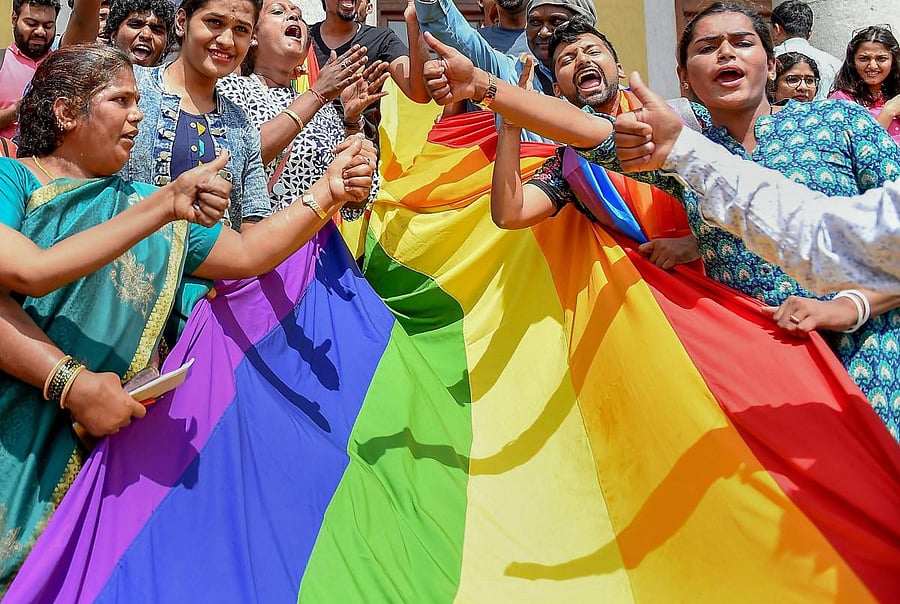
LGBTQ rights activists here on Thursday welcomed the Supreme Court judgement decriminalising consensual gay sex and dubbed the verdict "historic" and "unprecedented".
Satya Benerjee from Gay Bombay, a body working for the betterment of the community, said the historic judgement will have a far-reaching impact on the Indian society and will also help in "stopping brain-drain".
"This is a milestone that a particular community has achieved after a long, long struggle. A whole new era of equal rights for gay or lesbian people will begin. Thanks to the government and other parties as well, who kept a neutral stance," he said.
"This verdict will instil a sense of confidence among qualified and learned citizens of the country and stop the brain-drain," he added.
Transgender rights activist Laxmi Tripathi said the verdict was a tight slap on the faces of those who differentiated between people on the basis of their sexual preference.
"This verdict is a real tribute to those people who committed suicide or who were raped due to the stigma. This (judgement) has vanquished the cruelty that existed for a long time and has maintained the faith in the Constitution," she said.
"This day will be remembered as a golden day in the history of the country and it is a tight slap on (the faces of) those who used to categorise human beings on the basis of their sexuality and were looking into others' beds," Tripathi added.
Another LGBTQ activist Ashok Row Kavi said a new dawn has arisen for the people of this marginalised section.
"This verdict is quite unprecedented in many terms. The judges gave a unanimous decision. It will not only empower the marginalised sections but ensure their social, physical, psychological welfare. These people, hijras, members of the LGBTQ community, face several health and other issues like alcoholism, suicide, HIV etc. These issues will now get addressed. This is a better late than never move."
Welcoming the SC verdict, advocate Abha Singh said the decision to strike down Section 377 was long overdue.
She said this draconian provision of the IPC was violative of the fundamental right to equality (Article 14, 15), freedom of expression (Article 19) and most importantly, the right to life itself (Article 21).
"Every person has the right to choose their life partner. By criminalising homosexuality, the state was impinging on the individual's personal liberty and privacy, both of which are fundamental rights guaranteed under the Constitution. The injustice and discrimination that has been meted out to the LGBTQ community is abominable," Singh said.
"Justice Indu Malhotra has rightly said that we as a society owe them an apology for the stigma that has been associated with them. While the judgement is laudable and historic, for it to translate into reality, we require awareness campaigns and a receptive audience," she added.
She also said that the public must be willing to come together and be sensitive and empathetic to address the problems faced by the LGBTQ community.